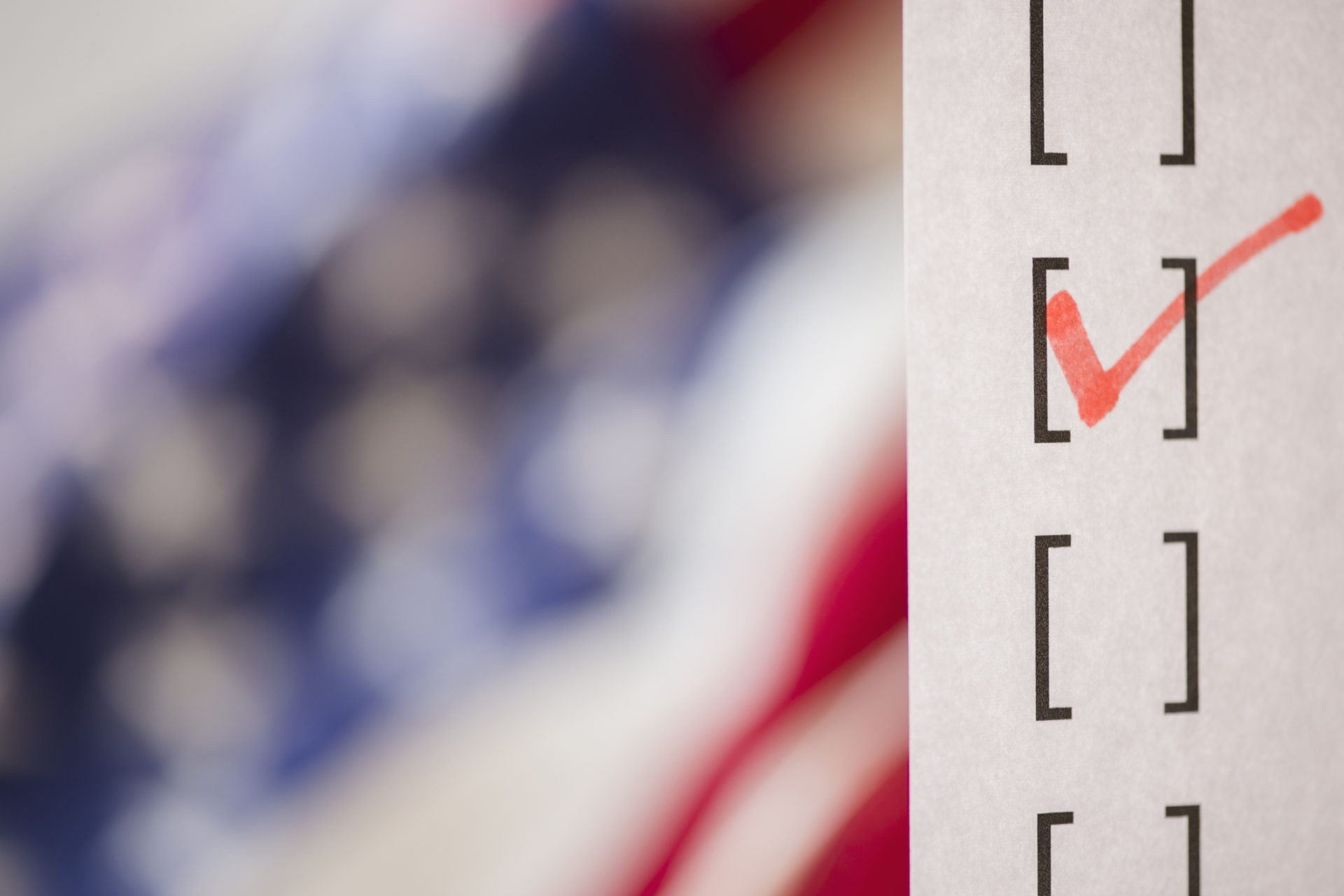Recently, this commitment has come under attack. Former President Trump refused to concede the 2020 election, falsely insisting that it had been stolen from him — a claim he continues to make without evidence to this day. His dangerous rhetoric and actions led to the assault on the U.S. Capitol as Congress was counting the electoral votes to formalize President Biden’s victory.
While the certification was eventually completed, the event showcased how fragile our democracy has become. With the 2022 midterms just around the corner and the 2024 presidential election looming, there is no time to waste in shoring up our defenses against further degradation of the electoral process.
In a NationSwell conversation hosted by our Council, Nick Penniman, founder of the bipartisan political reform group Issue One, and former House Majority Leader Richard Gephart, who serves on the board of Issue One, discussed the threats facing the democratic process in the U.S., and what can be done to counteract these threats and ensure continuing free and fair elections.
Here are some of the most compelling insights from the digital event:
What is broken in our democracy?
Penniman highlighted four key issues:
Money in politics and a lack of civic education: Members of Congress can spend up to 50% of their time in office fundraising, rather than working on needed legislation. Oftentimes they will seek funds from lobbyists, who may have different priorities than those of a member of Congress’ constituents.
Gerrymandering: The overwhelming majority of House races are uncompetitive, essentially ensuring the winner of the primary a seat in Congress. This creates a system where candidates need only pander to the base, which in turn causes further polarization.
Media fragmentation and disinformation: More and more people are getting their news from hyper-partisan institutions, creating a disconnect among the population. In addition, the rise of social media allows people to publish, often anonymously, toxic and even false content.
Lack of civic education: Only 30% of Americans can name the three branches of government, Penniman said.
The immediate threat against American democracy
Penniman said that the most pressing issue in the upcoming presidential election is election subversion — the constitutional ability for one party to sign a slate of electors that is inconsistent with the popular vote. Through a combination of advancing restrictive voting measures in Republican-controlled state legislatures and installing partisan election officials, including secretaries of state, Trump allies have laid out an explicit plan to not certify election results in swing states won by a Democratic candidate. This would then throw the decision to the state legislatures, which are almost all controlled by Republicans. Penniman points out that the Supreme Court would likely allow this, based on the Bush v. Gore case where it was decided that the Constitution grants states this authority.
Efforts being made to counter these threats
Issue One has created the National Council for Election Integrity, which serves as a front-facing group that can push back against the lie that the 2020 election was stolen. Issue One is also involved in pushing bipartisan legislation that would help make elections more secure. The most pressing of these efforts is an update to the Electoral Count Act, which would close any loopholes that would allow Congress to reject the results of the presidential election. A more long-term goal is to get social media platforms to rework their algorithms so that people are no longer fed distorted or inaccurate information. Finally, Issue One is pushing the Department of Justice to ramp up protection for election workers, many of whom have faced death threats in recent years.
Obstacles facing Issue One’s efforts
As Penniman noted, it would take billions of dollars to effectively research, formulate, and disseminate an effective counter narrative to the lie of the stolen election. This is simply an unrealistic fundraising goal. However, Issue One will look to recruit corporations to help with their efforts, such as when Major League Baseball pulled the All-Star Game out of Atlanta to protest restrictive voting legislation in Georgia.
What can you do to help?
Donating to key political races can be crucial. For example, keeping Democratic governors in power in swing states with Republican legislatures could serve as a firewall against any attempts to undermine or subvert the popular vote. Volunteering as an election worker or observer would also be helpful, as many former workers have quit since the 2020 election over the abuse they have faced. Volunteering would both help fill those empty roles and prevent partisan actors from swooping in to claim them.

 "
"